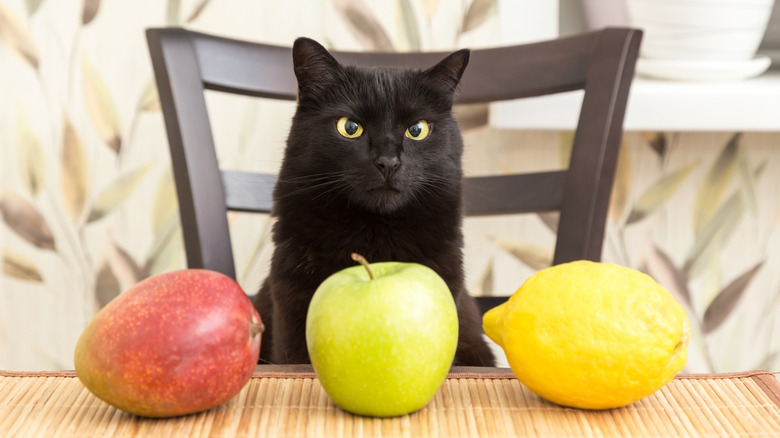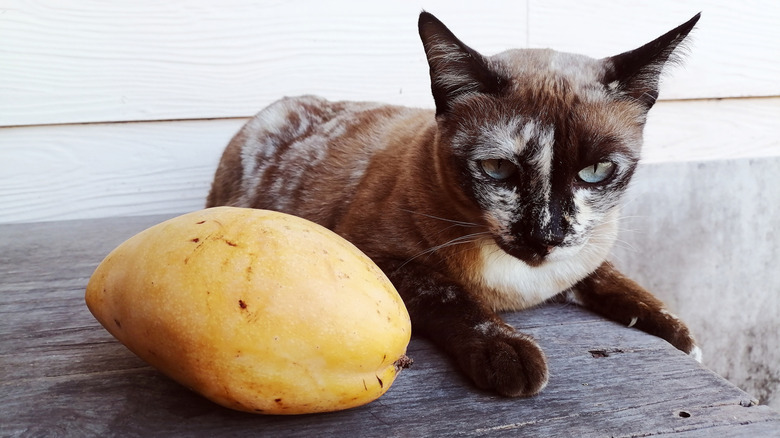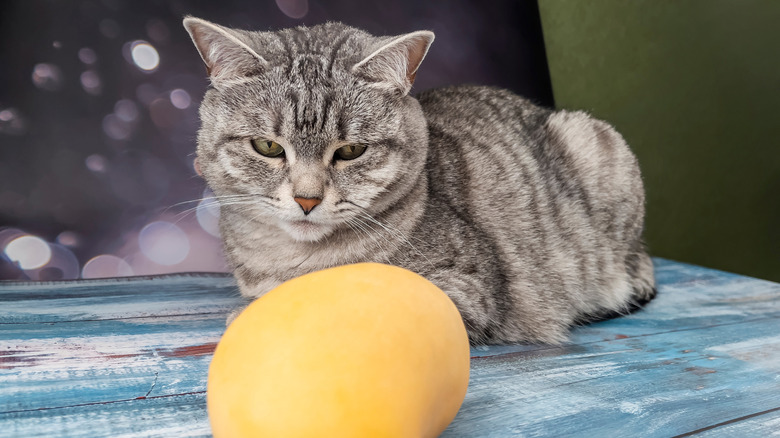What Happens When Cats Eat Mango (And Is It Safe?)
Most pet parents don't have to worry about their cats chomping down on food they're not supposed to. A feline's status as an obligate carnivore means they have a unique nutritional requirement for a meat-based diet. Their dietary needs mean that a curious kitty may want to steal bits of your sandwich or express their love of dairy by dipping their paws in your milk. They may be unlikely to be persuaded by fruit, vegetables, sweets, or other floor droppings that may harm them.
However, with their adorable antics and unpredictable nature, a kitty can sometimes surprise its owner with what it decides to eat. Purebred cats, like Siamese or Burmese, are prone to pica, which can make a cat chew on non-food items, including plants. While uncommon, it is not unheard of for kitties to eat fruit and vegetables. With mango being a favorite sweet indulgence in many households, the curious cat parent will want to know — can cats eat mango? The answer is yes — in moderation.
Is it safe for a cat to eat mango?
If a cat manages to snag some mango, the sweet, tropical fruit doesn't contain any toxins that can harm them. There are, however, some considerations that a pet parent will want to keep in mind before letting them indulge. Substance-wise, the tropical fruit contains several nutrients that can benefit cats, including fiber, antioxidants, and vitamins. However, the sugar content of a mango far outweighs any benefits it may provide a curious kitty. It is certainly okay for them to try mango, but there is no reason to incorporate it into their diet.
If you decide to offer a mini mango sample for a furry friend, remove the skin first. Avoid giving them the pit to prevent potential choking. It's also good to avoid dried mango altogether. The preservatives can upset a cat's digestive tract, and the higher sugar count further outweighs any nutritional benefits a cat may receive.
Potential adverse effects of a cat eating mango
Illness or adverse symptoms are uncommon when it comes to mango, as few cats will choose to eat it. However, felines can develop specific food allergies. While a reaction to a fruit like mango is uncommon, if consumption is accompanied by heavy breathing and face swelling, an owner should take their cat to the vet ASAP. Gastrointestinal issues, such as diarrhea and vomiting after eating mango can also occur. Pet parents should monitor their cat anytime after trying new food.
Too much sugar can negatively affect a kitty as they don't have the proper enzymes to digest carbs, including sugar. Long-term sugary snacks can also increase the chance of obesity and digestive issues. A feline diagnosed with high blood sugar (hyperglycemia) should also avoid sugary foods that can aggravate symptoms. If a pet kitty shows signs of potential diabetes, like excess water intake and urination, increased appetite, or weight loss, an owner should avoid giving them sweet treats until a veterinarian can check their blood sugar levels.


